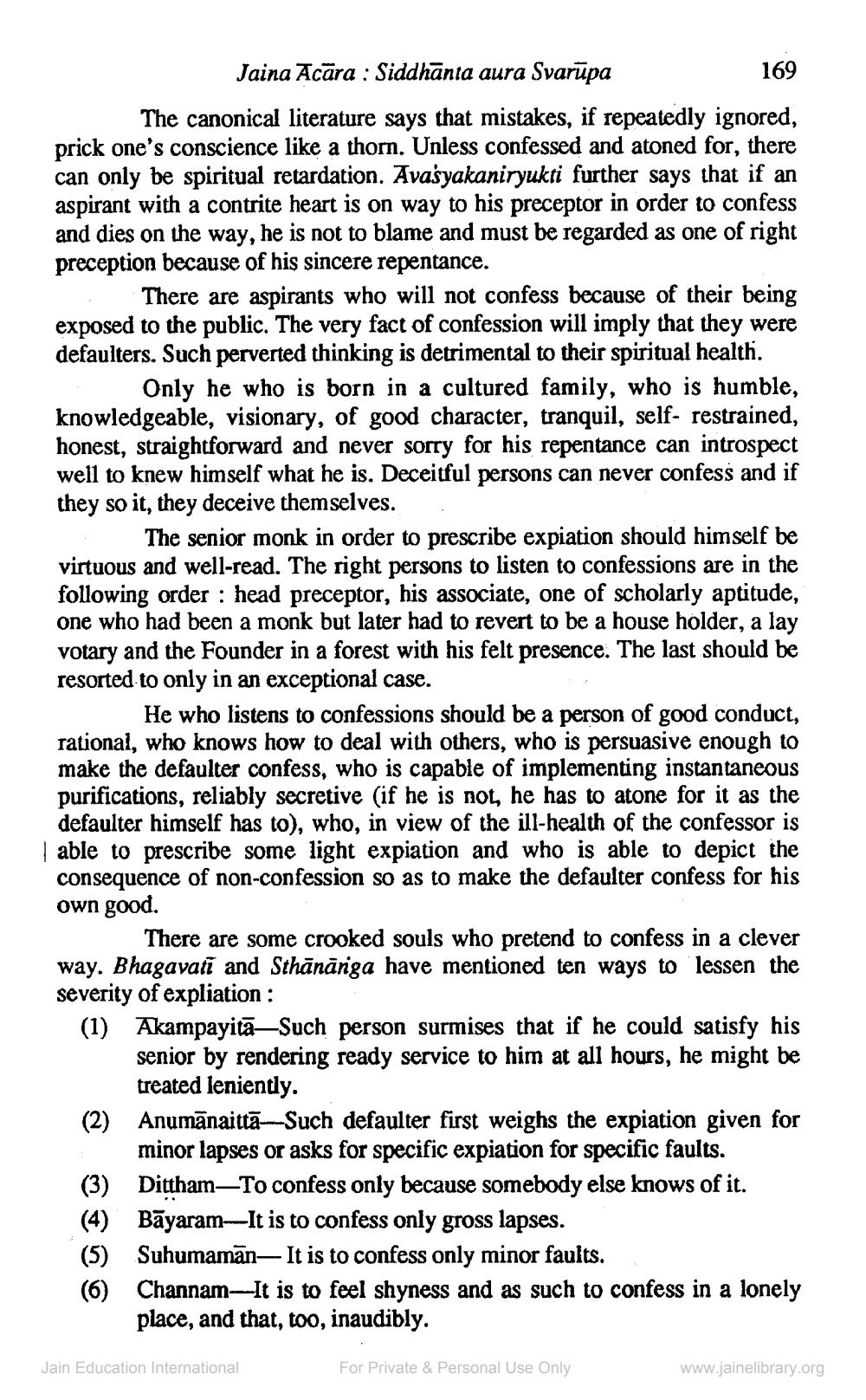________________
Jaina Acāra : Siddhānta aura Svarūpa
169
The canonical literature says that mistakes, if repeatedly ignored, prick one's conscience like a thorn. Unless confessed and atoned for, there can only be spiritual retardation. Avašyakaniryukti further says that if an aspirant with a contrite heart is on way to his preceptor in order to confess and dies on the way, he is not to blame and must be regarded as one of right preception because of his sincere repentance.
There are aspirants who will not confess because of their being exposed to the public. The very fact of confession will imply that they were defaulters. Such perverted thinking is detrimental to their spiritual health.
Only he who is born in a cultured family, who is humble, knowledgeable, visionary, of good character, tranquil, self- restrained, honest, straightforward and never sorry for his repentance can introspect well to knew himself what he is. Deceitful persons can never confess and if they so it, they deceive themselves.
The senior monk in order to prescribe expiation should himself be virtuous and well-read. The right persons to listen to confessions are in the following order : head preceptor, his associate, one of scholarly aptitude, one who had been a monk but later had to revert to be a house holder, a lay votary and the Founder in a forest with his felt presence. The last should be resorted to only in an exceptional case.
He who listens to confessions should be a person of good conduct, rational, who knows how to deal with others, who is persuasive enough to make the defaulter confess, who is capable of implementing instantaneous purifications, reliably secretive (if he is not, he has to atone for it as the
defaulter himself has to), who, in view of the ill-health of the confessor is | able to prescribe some light expiation and who is able to depict the consequence of non-confession so as to make the defaulter confess for his own good.
There are some crooked souls who pretend to confess in a clever way. Bhagavati and Sthānāniga have mentioned ten ways to lessen the severity of expliation : (1) Akampayita—Such person surmises that if he could satisfy his
senior by rendering ready service to him at all hours, he might be
treated leniently. (2) Anumānaitta-Such defaulter first weighs the expiation given for
minor lapses or asks for specific expiation for specific faults. (3) Dittham—To confess only because somebody else knows of it. (4) Bāyaram-It is to confess only gross lapses. (5) Suhumamān— It is to confess only minor faults. (6) Channam-It is to feel shyness and as such to confess in a lonely
place, and that, too, inaudibly.
Jain Education International
For Private & Personal Use Only
www.jainelibrary.org




